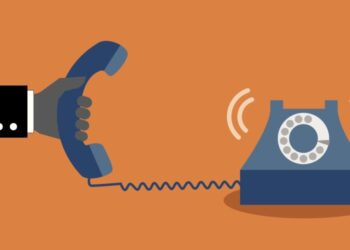Job interviews are an intriguing mix of formality and spontaneity. Essentially, they are structured conversations designed to determine two things: whether you are the right fit for the employer, and whether the employer is the right fit for you. Yet, many candidates approach interviews as if they are high-stakes, make-or-break moments – a final verdict on their entire career potential. While interviews are important and often serve as the first face-to-face impression you’ll make on a potential employer, the tendency to overthink and catastrophize can become a real obstacle.
Anxiety, self-doubt, and fear of failure can subtly undermine your performance long before you enter the room. The challenge, therefore, is not simply to “be confident” – a vague instruction that rarely helps anyone – but to understand how to build genuine, grounded confidence before and during an interview. That requires preparation, perspective, and the ability to keep the conversation human.
1. Do your preparation and run through
A successful job interview is much like a polished stage performance or a winning sports match – the visible success is built on invisible hours of rehearsal. Musicians rehearse until a piece feels effortless; athletes train until execution becomes second nature. The same principle applies to interviews: the more you prepare, the less you’ll be thrown off by unexpected questions or moments. Your preparation should be multi-layered:
- Research the organisation. Go beyond the job posting. Learn about the company’s history, mission, values, and recent projects. This gives you context to shape your answers and shows genuine interest.
- Understand the role deeply. Identify the skills, responsibilities, and expectations that are most critical. If any aspect is unfamiliar, study it ahead of time.
- Map your experiences. Create specific examples from your past work – both technical achievements and soft skills – that align with the role. Use the STAR method (Situation, Task, Action, Result) to structure your responses.
- Seek insider insights. Speak with current or former employees if possible. Understanding the broader context of the hire (e.g., a new project launch) can help you position your value.
- Practice verbal delivery. Your CV is written for the eye; your interview performance is spoken for the ear. Rehearse how you will describe your experience clearly and naturally.
- Do mock interviews. Role-play with a friend, mentor, or career coach. Get feedback not only on your answers but also your tone, pacing, and body language.
The act of preparing doesn’t just equip you with information – it shifts your mindset from uncertain to capable. That mental shift alone is a major source of confidence.
2. Dress the part, feel the part
First impressions are visual before they are verbal. While professional attire norms have relaxed in many industries, your presentation should still signal respect for the occasion and seriousness about the role.
- For client-facing or senior roles, a collared shirt, jacket, tailored trousers or skirt, and formal shoes are a safe choice.
- For less formal environments, smart-casual works – neat jeans and a clean, well-fitting shirt or blouse.
- When in doubt, slightly overdress rather than underdress.
Beyond formality, clothing affects psychology. Studies on “enclothed cognition” show that what we wear influences our confidence and performance. Dressing in a way that makes you feel sharp and professional can subtly elevate your posture, tone, and mindset. Don’t overlook personal grooming – a fresh haircut, neat facial hair (if applicable), and clean shoes all contribute to a polished impression.
3. Visualize the ideal interview
Visualizing success isn’t some mystical new-age practice; it’s a powerful psychological tool. We all visualize every day, whether we’re anticipating a conversation with a friend or looking forward to a weekend event. So, why not use this natural ability to your advantage? Take a few minutes before the interview to run through a positive scenario in your mind. Imagine a pleasant greeting, a smooth discussion of your qualifications, and an easy rapport with the interviewers. Visualize:
- A pleasant, jovial greeting and introductions.
- Going through your relevant experience and this being received well.
- Asking the panel of interviewers a question about the business and listening to the answer.
- Thinking about a question quietly before answering it.
- Getting enthusiastic about the potential projects you’d work on.
- Having good feedback from the interviewers in the moment.
- Keeping eye contact.
- Finishing feeling positive about the discussion.
This process trains your subconscious to focus on positive outcomes and fosters a calm, confident energy. You can’t control what the interviewers will do, but you can control your own mental state, and that energy will absolutely set the tone.
4. Bring your strengths to the table
One of the most common mistakes candidates make – particularly in cultures where humility is prized – is under-selling themselves. Being modest is admirable; being forgettable is not. Write down your most relevant strengths, achievements, and unique skills specifically for this role. Be ready to illustrate each with evidence.
Bringing a neatly organised note page to the interview is not only acceptable but professional – it shows forethought and helps ensure you don’t leave key points unspoken. Remember: the interview panel will be using your answers to build a full picture of your fit. If you don’t say it, they can’t consider it.
5. Be human, not a robot
An interview is not an interrogation; it’s a conversation between people. Trying to deliver “perfect” answers to every question often results in stiffness and disconnect. Instead:
- Use small talk at the start to ease into the interaction.
- Show interest in the interviewer’s role, the team culture, and the organisation’s vision.
- Share relevant personal anecdotes that reflect your values and working style.
This approach helps you build rapport, which research consistently shows to be a deciding factor in hiring decisions.
6. Master the art of listening
Confidence isn’t just about speaking well – it’s about listening attentively. Avoid the temptation to jump in too quickly or finish the interviewer’s sentences.
- Let the interviewer finish before responding.
- If the question is complex, pause briefly to gather your thoughts.
- If unclear, politely ask for clarification.
Active listening not only ensures you answer the question asked, but it also demonstrates respect and professionalism.
7. Acknowledge and manage nerves
Feeling nervous is a sign that you care. The goal isn’t to eliminate nerves but to manage them.
- Accept that nervous energy is natural.
- Focus on your preparation, not your anxiety.
- Breathe slowly to steady your voice and thoughts.
Over time, repeated interview experiences reduce nervousness, freeing up more mental bandwidth for performance.
8. Maintain open, relaxed body language
Fidgeting, crossed arms, or avoiding eye contact can unintentionally signal disinterest or discomfort. Keep your posture open, hands visible, and gestures purposeful. This becomes much easier when you’ve prepared well, dressed comfortably yet professionally, and grounded yourself with a few deep breaths before entering the room.
9. Be kind to yourself
No interview will be perfect. There will always be a moment you wish you had handled differently – that’s normal. What matters is that you showed up prepared, presented your value honestly, and engaged respectfully. If you don’t get the job, view the experience as a learning opportunity rather than a personal failure. Every interview sharpens your skills for the next one.
10. Keep perspective: What’s the worst that could happen?
In truth, the worst realistic outcome of a job interview is simply not getting that particular job. It’s not career-ending, and it’s not permanent. The more interviews you do, the more resilient and adaptable you’ll become. Failure, when reframed, is just feedback in disguise. Some of the most successful careers are built on lessons learned from interviews that didn’t go as planned.
Final thought
Confidence in interviews is not about arrogance or perfection. It’s about being prepared, self-aware, and adaptable, while remembering that you are evaluating the employer just as much as they are evaluating you. Go in prepared, present yourself with pride, and focus on having a real conversation. Whether you land the job or not, you’ll walk away having sharpened your skills for the next opportunity – and that’s a win in itself.


































































































































































































